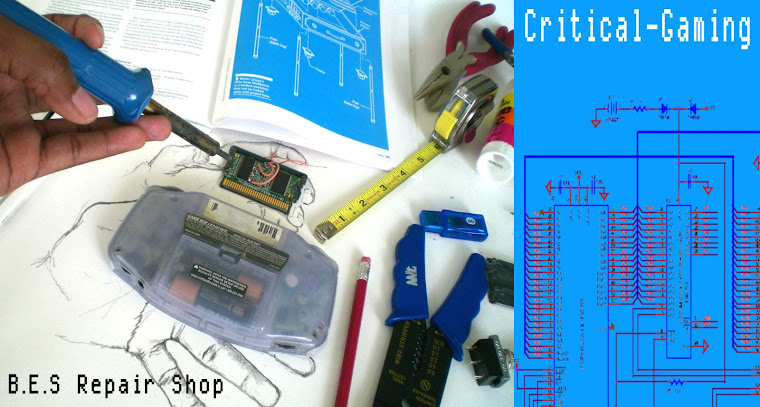Aside from a structuralist approach to critical analysis, A New Classical approach looks at how the game's various elements (moves, attacks, level elements, sound, visual effects, etc) work together or harmonize to support the core of the game. The core of the game is more than the sum of its basic mechanics. The core can usually be described in a simple phrase of an action or feeling that encapsulates the overall impact of a game. In a New Classical critical mode, we assume that every element in a game adds up to some effect or purpose. Whether or not the end result is fun, boring, broken, or not quite what the developers intended doesn't matter to a New Classical critic. How a game comes together in the end is a measure of its unity and consistency.
The following review of Super Mario Galaxy by EDGE is a quality review that not only makes my top 3 SMG reviews (the other two I've re-reviewed previously), but it also reflects a Structuralist and a New Classical critical approach.
Edge Super Mario Galaxy Review
Super Mario Galaxy is impossible. Don’t get the wrong idea – it’s not a particularly difficult game, although it does have its moments. What we mean is, it obeys no rules, contradicts everything you know, and has no right to exist.
Just like in Margaret Robertson's review, the intro paragraph is sarcastic, silly, and totally appropriate matching its style with Super Mario Galaxy. The last line in this quoted section already suggests Galaxy is a game that deviates from the conventions of its genre. "It obeys no rules" doesn't mean the game has no order, but that the established rules from previous games in the game genre don't apply thus contradicting "everything you know." By thinking about rules and conventions, we're already working toward thinking in a structuralist mode.
Mario Galaxy turns 3D into 2D, and 2D into 3D. It takes complex spatial ideas and makes them simple and instinctive; it takes the most basic, most familiar acts in gaming and makes them strange, finger-twisting and fresh.
It lets you reach into the screen, collecting and shooting the star bits that litter the universe, grabbing on to tractor beams, steering bubbles through mazes, twanging Mario and Toad out of catapults. It lets you play the game in two ways and two places at once, and breaks a hitherto unseen barrier between the player and the action. That you can both be Mario and help him is another of Galaxy’s initially strange dislocations, but it comes to feel so comfortable that losing this godlike power is like losing an arm.
Also, as Parish mentioned, Edge writes about the how collecting starbits while simultaneously controlling Mario merges two dynamics of spacial interaction. This aspect of Galaxy's controls and interaction structurally divides and defines space (a key component to platform games) in ways never dreamed of before. "Reach into the screen," "breaks a hitherto unseen barrier," and "play the game in two ways and two places at once" are phrases that speak to the amazing unifying structure of Galaxy and of its ground breaking design.
Structurally, it’s a little more conventional – 120 stars, split into six areas comprising several galaxies each, with the ‘final’ boss coming halfway through, is an entirely familiar arrangement.
Edge even uses the word "structurally" here. In this case, Edge comments on the arrangement of the hub world by describing a formula that the previous two 3D Mario platformers (Super Mario 64, Super Mario Sunshine) have established. This is an example of how Galaxy is structured within genre conventions.
Super Mario Galaxy is a platform game, pure and simple. More so than Mario 64 is; more so than any truly 3D videogame ever made. For all its countless diversions and bizarre ideas, it keeps coming back to running, bouncing, scaling, exploring, teetering on the brink, taking your heart in your mouth and jumping off the edge of the world. For others, space is the final frontier, the furthest you can go; for Mario, it’s just like coming home.
Here, Edge claims that Super Mario Galaxy is a platform game that reins over all over other platform games and "3D games ever made." More importantly, Edge expresses that all the "countless" variety in the game all adds up to solid platforming: "It keeps coming back to running, bouncing, scaling, exploring, teetering on the brink, taking your hear in your mouth and jumping off the edge of the world." In other words, there's nothing in the game that detracts from the simple task at hand; like the original Super Mario Bros. on the NES, it's all about that jump. Even in space and the most 3D environment ever, Mario is still harmonized around that famous jump. This New Classical idea not only displays the unity in Galaxy, but in all of Mario's platform games throughout his entire series. The feeling of unity is a big part of what makes Mario games feel like Mario games.
